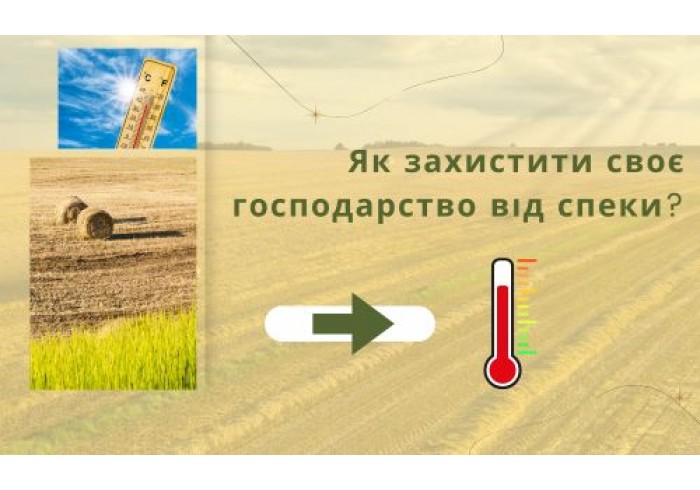How to protect your household from the heat?
Summer can be a real test for your farm. Intense heat and scorching sun can negatively affect productivity, and plant and animal health, and increase the risk of crop losses. How to protect your farm from the heat and ensure optimal conditions for the growth and development of your crops and animals? In this article, we will look at key methods and products that will help you effectively fight the negative effects of high temperatures.
Let's start with what is important to know
The heat affects not only the yield of crops but also the general condition of the soil, the level of humidity, as well as the health of animals. For farmers, owners of gardens, cottages and vegetable gardens, it is important to know how to cope with high temperatures to minimize risks and ensure stable development of the economy.
1. Correct watering: the key to plant health
One of the main aspects of protecting your farm from the heat is ensuring proper watering.
Regularity. In hot weather, it is important to water plants regularly. Insufficient watering can lead to dehydration of plants and reduced yield.
Watering time. It is best to water early in the morning or late in the evening when the air temperature is the lowest. This will help reduce water loss due to evaporation.
Drip irrigation. Drip irrigation allows you to deliver water directly to the roots of plants, reducing water consumption and ensuring optimal soil moisture.
2. Shading: protection from the scorching sun
Shading is another effective method of protecting your farm from the heat. Special shading materials will help reduce the temperature and protect plants from direct sunlight.
Shading nets. Installing shade nets over beds or individual plants can reduce temperatures and prevent leaf burns.
Awnings and canopies. For protection, you can install awnings and canopies that create shade and provide comfortable conditions for being outdoors.
3. Nutrition: support of the vital forces of plants
In hot conditions, plants need additional nutrition to support their vital activity.
Complex fertilizers. The use of fertilizers rich in macro- and microelements will help support the health of plants and provide them with the necessary nutrients.
Organic fertilizers. Compost, humus, and other organic materials not only feed plants but also improve soil structure, contributing to better moisture retention.
4. Mulching: preservation of moisture in the soil
Mulching is an effective way to preserve moisture in the soil, reduce temperature, and fight weeds.
Organic materials. Using straw, grass clippings, leaves, or compost to mulch the beds will help conserve moisture and provide plants with optimal growing conditions.
Agrofibre, geotextiles, and other materials can also be used for mulching, providing additional protection against weeds and retaining moisture.
By following the given recommendations, you will be able to provide your farm with optimal conditions for development and achieve high yields even in conditions of intense heat.
Agreen offers a wide range of products to protect your farm. Contact us for professional advice. Together, we will help you provide maximum protection from the heat and achieve high results in your agribusiness.



